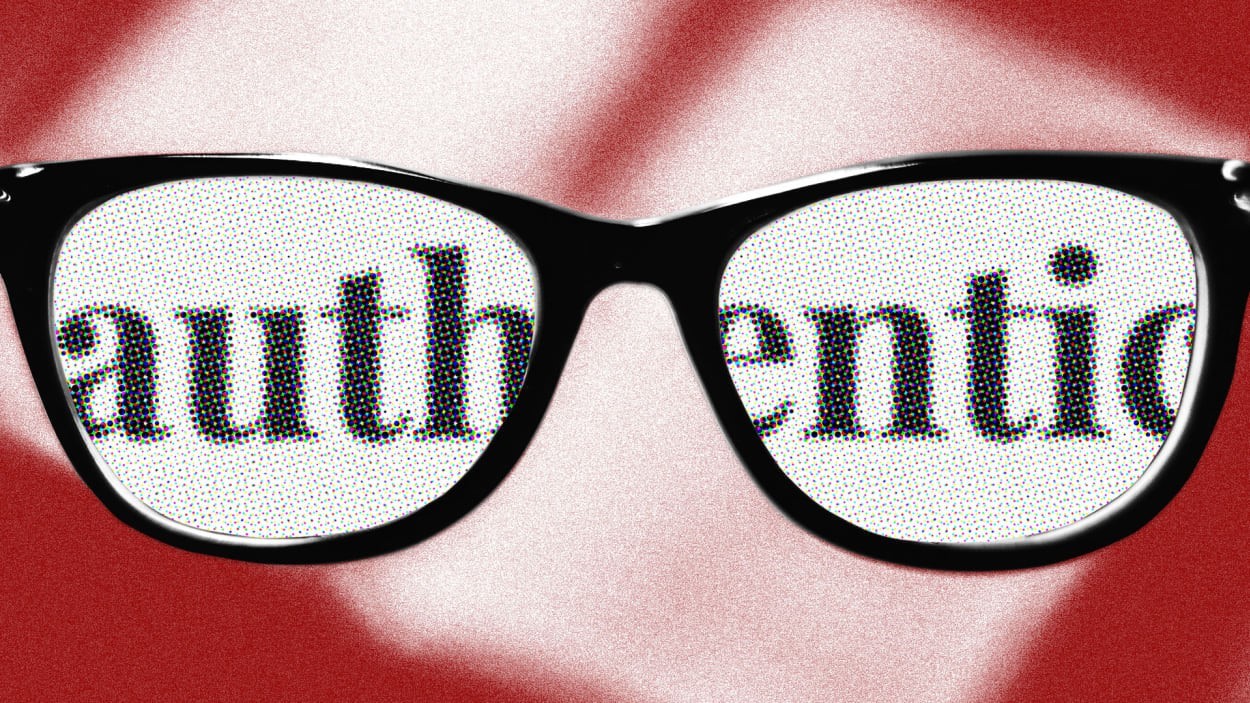Merriam-Webster’s 2023 word of the year is a nod to AI’s schism
Merriam-Webster announced its 2023 Word of the Year on Monday: Authentic.
While the word typically sees a high volume of lookups, 2023 saw a substantial increase in that search volume, something the dictionary attributes to AI, celebrity culture, identity, and social media during the year.
Merriam-Webster defines authentic as “not false or imitation” and “true to one’s own personality, spirit, or character,” with synonyms to the word being “real” and “actual”—concepts that particularly come into play as AI has become more and more prevalent.
“The rise of AI helped drive interest in the word,” said Peter Sokolowski, Merriam-Webster’s Editor at Large. “The line between ‘real’ and ‘fake’ has become increasingly blurred. As a result, in social media and marketing, authentic has become the gold standard for building trust—and authenticity, ironically, has become a performance.”
This year, in particular, artificial intelligence has started to become more and more “real,” making it even more difficult to spot AI-generated images and content. In June, a study published in Science suggested that humans are even more likely to believe disinformation generated by GPT-3 (a precursor to the large language model powering the current ChatGPT) than similar posts written by humans.
Fake images of everything from the Pope decked out in designer clothes to war photos have populated social media, and deepfake content has become a growing concern for users who are worried about misinformation spreading on social media—so much so, that they’re more suspicious of authentic content as well.
Speaking of deepfake, that word also earned a spot in the dictionary’s 2023 Words of the Year list. The term saw a spike in April, when Tesla lawyers claimed that some of Elon Musk’s previous statements on self-driving safety could have been faked. It got another bump a month later, when fake ads depicting Donald Trump and Ryan Reynolds started to make their way around, and of course, the topic also came up in the SAG-AFTRA strike.
Another word that got called out this year was dystopian, which first got a bump on Earth Day thanks to record-high temperatures, but also saw traction later in the year as it was used regarding discussions of AI regulation, with warnings that AI might eventually replace or subjugate humankind. That debate has particularly come to a head this past week with the firing and rehiring of OpenAI CEO Sam Altman.
While this year’s Word of the Year certainly might give us pause, last year’s top word also had a bit of a misinformation slant: Gaslighting.
(10)



